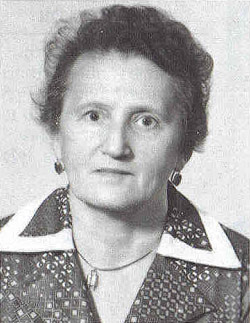 Bella Aleshkovsky (Sheintoch)
|
|
Born in 1921 in Markine, Lithuania, she joined the Bnei Akiva movement at the age of 13 and became one of the leaders of the local branch, also taking part in organizing a kibbutz in Slobodka. After the Soviet Army occupied Lithuania in 1940 she joined an underground movement, delivering Hebrew books from Kovno to her native town and back. Following the Nazi invasion of the USSR, she fled to Turkmenia with a group of fellow Jews. Trying to cross the Iranian border in 1942 she was caught and sentenced to three years imprisonment. Her sentence was served in the camps of Tagil and Ashkhabad and, although freed in 1944, she was exiled to a neighboring camp. In 1946 she was exiled again, this time to a Kazakh kolkhoz and finally freed in 1956. She was unable to emigrate to Israel until 1979 where she died in 1991. |
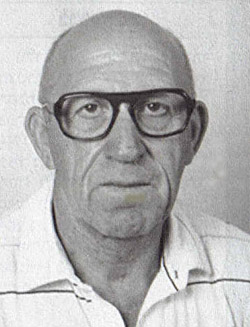 Wolf Barak
|
|
Born in 1919 in Poland, he fled to the USSR in the wake of the Nazi occupation and, in 1942, was arrested, accused of anti-Soviet incitement and sentenced to 8 years imprisonment. Released in1950, he was unable to get to Israel until 1957. |
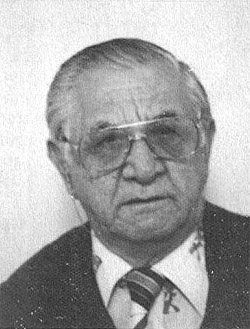 Shalom Blank
|
|
Born in 1920 in Monastirska, Poland, he joined “Beitar” at the age of 15 and worked as an assistant to the secretariat. Called up by the Red Army in 1941, he was arrested in 1942 for trying to enroll in the Polish Army, which had organizational bases in the Soviet Union, and sentenced to 7 years imprisonment. It wasn't until 1957 that he was granted permission to emigrate to Israel. |
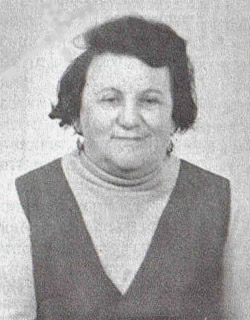 Sara Butsimanskaya (Rabinovich)
|
|
4. Sara Butsimanskaya (Rabinovich). Born in 1907 in Bessarabia, she was involved in Zionist activities from an early age. A member of the youth section of the “Beitar" she was arrested in 1942 for Zionist activities and sentenced to 10 years imprisonment. Freed in 1952, she had another 20 years' struggle in order to get to Israel in 1972. She died in 1992. |
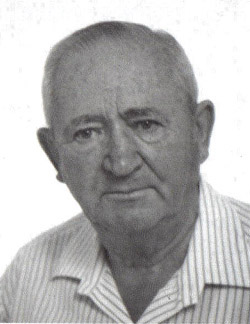 Arie Dolitzky
|
|
Born in 1912 in Romanovka, Serbia, he was a member of the “Beitar” movement from 1928 till 1939. In 1942, together with other Zionist activists, he was arrested and sentenced by the OSO to 5 years imprisonment which he served in the Karaganda camp. Released in 1947, he was unable to get to Israel until 1966. |
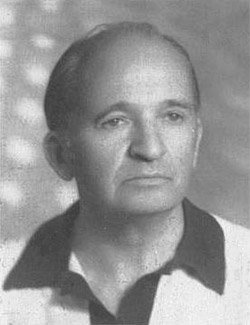 Yitzhak Eisenberg (Plada)
|
|
Born in 1915 in Warsaw, he was brought up in the spirit of Zionism. A graduate of the Medical School of Lvov University (1940), he was involved in Zionist activities throughout his studies. As a member of the “Zionim Klaliyim” (“General Zionists”) party he disseminated Zionistic principles among his fellow-students. Lecturing and writing on Zionism until 1939, he was arrested in 1942; his interrogation continued for two years, during which he was severely tortured. He was then sentenced to 10 years in labor camps for “espionage for international Zionism” followed by permanent expulsion to North Siberia. Due to pressure from the Polish authorities, his sentence was shortened and he was set free in 1957. He succeeded in emigrating to Israel that same year. He died in 1992. |
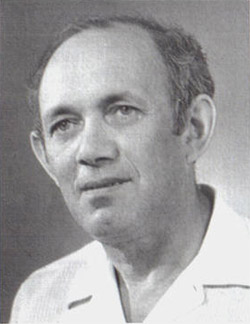 Efraim Fishbein
|
|
Born in 1919 in Rovno, Poland, he became an active member of “Beitar” at an early age until 1942, while also joining “Hehalutz” in 1936. In 1942, while trying to cross the Afghan border in order to reach Erets Yisrael, he was arrested and sentenced to 2 years imprisonment. Arrested again in 1953, he was accused of Zionist activities and sentenced to 6 years imprisonment. Freed in 1959, he succeeded in emigrating to Israel in 1960. He died in 1981. |
 Lipa Fisher
|
|
Born in 1905 in the East Galicia which was included into Poland at that time, he was in 1930-1936 an active member of the Zionist movement “Gordonia”. Until beginning of the World War-II he was Chairman of a movement’s branch in a small town. Presumably in 1942 he tried to cross the Soviet-Iran border to reach eventually Eretz Israel but was arrested, tried and sentenced to 10 years imprisonment in Gulag and 5 years disfranchisement. He was released in 1952 and continued to fight for his repatriation, and in 1958 he achieved his goal. He wrote a book titled “Tell about Gulag’s labor camps”, and also a book of verses in Polish. He died in 1988. |
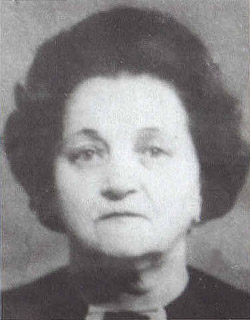 Tzilia Itzkovich
|
|
Born in 1905 in Moldova, she joined the Zionist movement as a young girl and was very active among Jewish youth, lecturing and writing articles supporting the rights of Zionism, the Jewish state and the right to emigrate to it. Arrested in 1942 for her Zionist activities, she was sentenced to 8 years imprisonment and was, indeed, set free in 1950 but the struggle to get to Israel wasn't won until 1972. |
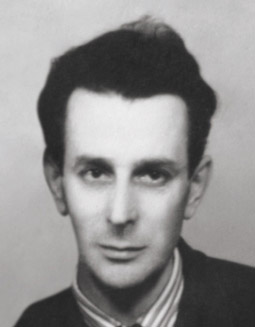 Simon Caldararu
|
|
Simon Caldararu was born in 1916 in village Tirgu-Frumos, Romania. Together with a group of young Romanian Jews adhered to Zionist ideas he illegally crossed the border with Soviet Union in escape from German troops but was arrested by NKVD and in the beginning of 1943 was sentenced to 10 years imprisonment and 3 years of exile. He served his term in labour camps in Vorkuta and spent his exile in Inta. He was released in 1956, returned to Romania and tried to get exit visa to Israel but was refused without any explanations. He applied for the exit visa several times but succeeded to get it in 1965 only, and the same year went to Israel. He died in May 1997. Information about Simon Caldararu was received from his daughter Vicky Evra in September 2011. |
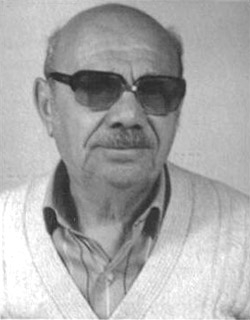 David Nakhimovsky
|
|
Born in 1921 in Dvinsk, Latvia, he was a member of "Beitar" from 1933 to 1938. In 1933 he emigrated to Israel but had to return in 1939 for family reasons and was thus effectively trapped in Latvia because of the war. In 1942 he was arrested, accused of Zionist activities and sentenced to 10 years imprisonment and 5 years exile. Freed in 1957, he was still unable to get to Israel till 1971. |
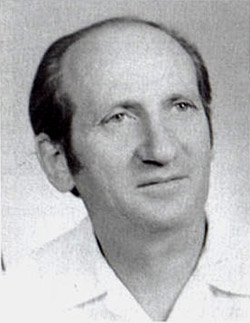 Yakov Popko
|
|
Born in 1922 in Lida, Poland, he was an active member of the Young Zionist Movement in his hometown but after the Shlomo Ben-Yosef trial, (1938) he chose to get involved with the “Beitar” movement and from 1939 to 1941 he took an active part in the underground Zionist movement in Lida. He was also connected with the Vilna “Etzel” circle which helped the Jews who had crossed the USSR border. During his army service in 1942, his Zionist past was discovered. He was arrested, accused of treason and the intention of deserting the army because of his "Zionist inclinations". Sentenced to 5 years imprisonment, he was released in 1947 but his dream to emigrate to Israel, via Poland, did not come true until 1958. |
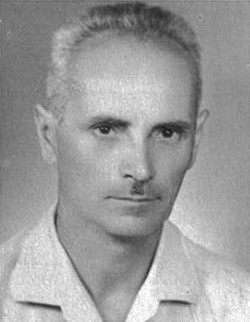 Moshe Purimsky
|
|
Born in 1911 in Vitebsk, he took an active part in the Zionist movement from an early age. Arrested in 1942 and accused of an illegal attempt to get to Erets Yisrael via Turkey, he was sentenced to 10 years imprisonment. On his release in 1952, he continued his struggle for the right to emigrate to Israel. He finally succeeded in 1965. He died in 1979. |
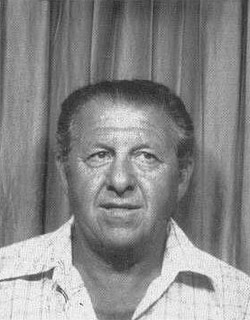 Yehuda Rink
|
|
Born in 1919 in Kalish, Poland, into a traditional Jewish family. As a child he joined “Hashomer Hatsair” and, from the age of 16, became an active member of “Beitar”. In 1942 he tried to cross the Iranian border in order to reach Erets Yisrael but was arrested by the Soviet authorities and accused of Zionist and sabotage activities. This earned him an 8 year prison sentence after which he was exiled to Siberia for 7 more years. He served his sentence in Krasnoyarsk, in the Tavdinsk camp and was released in 1957, whereupon he moved with his family to Poland, emigrating to Israel in 1960. |
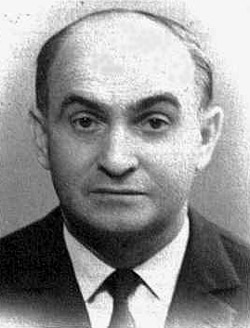 Avraham Shalit
|
|
Born in 1917 in Poland, not far from Warsaw, he succeeded in acquiring a certificate to emigrate to Eretz Yisrael in 1941 but was arrested in 1942 and accused of espionage. Sentenced by the OSO (Special military tribunal) to 12 years imprisonment to be followed by exile, he served his sentence in Krasnoyarsk, Tavda and in the camps Vostok, Orlag. Released in 1954, he emigrated to Israel in 1958. |
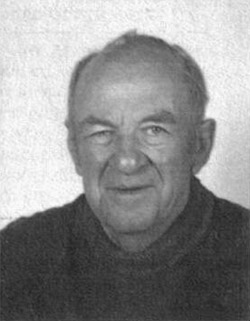 Anatoly Shlosberg
|
|
Born in 1914 in Kovno, Lithuania, he was active in “Poalei Zion” from 1923 to 1941 and also established contact with “Keren Kayemet”, working there as a fund raiser . He was arrested in Aktiubinsk in 1942, accused of "intending to emigrate" to Erets Yisrael and sentenced to 10 years imprisonment. He served his sentence in the labor camp of the Kuibyshev hydro power station construction site, and was released ahead of time, but was arrested again in 1955. Released in 1956, he didn't succeed in getting to Israel until 1969. |
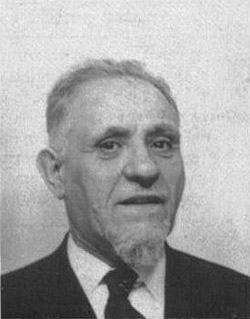 Rabbi Nathaniel Shmukler
|
|
Born in 1910 in Ivvia, Poland, he became a rabbi and was engaged in religious and Zionist activity in the “Ha-Mizrachi” center over several decades, also establishing centers for the training of reservists. Arrested in 1942 and accused of Zionist activities, he was sent to the Gulag till 1950. After his release he was exiled but managed to escape after a year. He emigrated to Israel in 1973 and died in 1991. |
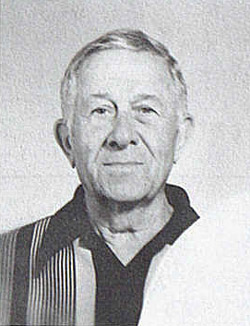 Pyotr Spector
|
|
Born in 1919 in Odessa, Ukraine, he was a member of “Beitar” from 1932 to 1939, also joining the militant revisionist organization “Brit HeHayal”. In 1942 he and a group of like minded youth tried to cross the border between Turkmenistan and Iran in order to reach Eretz Yisrael. The group was arrested and put on trial. Pyotr Spector, being the head of the group, was sentenced to death but this sentence was commuted to 10 years imprisonment in a labour camp under exceptionally severe restrictions. He served his sentence in the Ashkhabad prison and in the camps of Karaganda, Aktiublag, Orlag and Vostok. Released in 1952 he was unable to emigrate to Israel until 1960. |
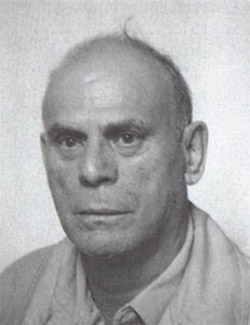 Shlomo Stankevich
|
|
Born in 1919 in Poland, he was active in the “Hashomer Hatsair” and “Hehalutz” movements and from 1936 to 1939 was responsible for the initial contacts between fishermen's groups and aliyah envoys. In 1942 he hoped to be conscripted in the Polish army which could have given him the possibility of getting to Eretz Yisrael but, instead was arrested and sentenced to 8 years imprisonment and 7 years exile. He continued his activity for the furthering of aliyah during his imprisonment. Released in 1957 he succeeded in getting to Israel in 1960. |
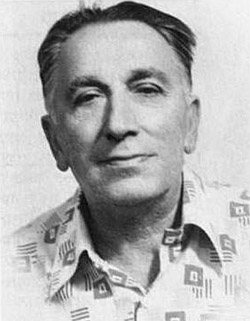 Yosef Ben Pinhas Surkis
|
|
19. Yosef Ben Pinhas Surkis. Born in 1917 in Czechoslovakia during the same year that his family returned to Bukovina, he was an active member of “Beitar” from 1936 to 1940. Arrested in 1942, accused of treason and Zionist propaganda he was sentenced to 10 years imprisonment which he served in the Karaganda and Krasnoglinka camps. Released in 1952 he succeeded in getting to Israel only 20 years later, in 1972. |
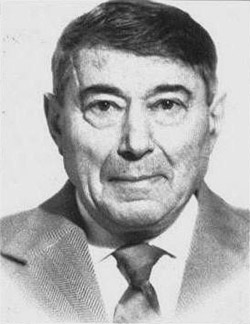 Mendel Vissman
|
|
Born in 1923 in Issi, Rumania, he participated in the Zionist movement from an early age, was arrested in 1942 and sentenced to 10 years imprisonment. Despite being released in 1952 he didn't succeed in getting to Israel till 1990. |
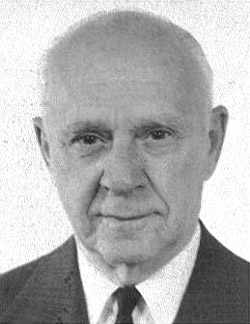 Leib (Leon) Wasserman
|
|
Born in 1909 in Riga, he took an active part in “He-halutz Ha-tsair” from an early age and was a board member of the “Gordonia” movement in Latvia. He was engaged in raising money and mobilizing friends to start up the kibbutz “Mishmarot” in Israel. He studied law and economics but at the outbreak of WWII fled with his family to the Soviet Union and ran a law practice in Dushanbe, Tadjikistan. In 1942 he tried to cross the Turkish border but had to give up because of the illness of one of his group. He was arrested and sentenced by the OSO (Special military tribunal) to 3 years imprisonment which he served in the Norilsk camp. After his release he still had to fight for permission to emigrate to Israel, which he did in 1971. |
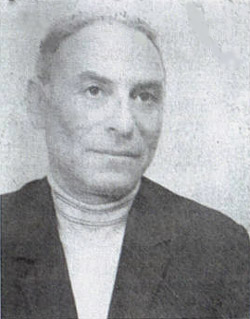 Lev-Leon Yofis
|
|
Born in 1924 in Konstantinovka, Ukraine, he was recruited into the Red Army in 1941 and arrested in 1942, when he was tried by the war tribunal for his attempts at helping Jews cross the border. For this he received 10 years imprisonment in the labour camps under the severest of conditions and to a 3 year deprival of human rights. Set free in 1955, he moved to Poland in1957. In 1961 he emigrated to Israel. |